Outside the Vines: Brewing Interest
Millions of Americans are familiar with coffee as a staple in their everyday lives. Many people just want a good cup of joe, but Trevor Corlett, co-founder of Madcap Coffee Co. in Grand Rapids, Mich., has discovered people have a greater desire to learn the story behind the caffeine.
The café and roastery has embraced a unique approach for a small business since it originated in 2008.
“We made some commitments to wanting to be involved in sourcing our coffee directly; we are very passionate about being able to share the story of coffee,” Corlett says. “Our goal is to create an experience that intrigues people to the extent that they want to know why we’re so intense.”
Packaging From Seed to Cup
Coffees at Madcap are not named in a traditional way. Customers won’t find “Brazil” or “Colombia” front and center on the primarily black bags with white labels and a standout color.
“Rather than very broad and ambiguous names, we’ve broken it down to the extent that the coffee we’re selling either has the name of the producer as the name of that coffee or the name of the farm itself,” Corlett says.
This naming system sometimes results in exotic names, so labeling is crucial. All Madcap bags have some key information about the coffee’s origins: the producer or the cooperative if they buy from a co-op, the micro-region, the altitude, the variety or varieties and the processing methods.
“Our desire is that these packages raise questions,” Corlett says. “This can only be an option if we’re invested in our staff education, so the amount of education we provide our staff is kind of staggering.”
Educating and Engaging Staff
Madcap Coffee does not aim to attract individuals looking to be an after-school barista or finding a between-gigs job.
“The culture we’ve created within our company is we attract people who want to make coffee a career,” Corlett says.
After two years on the job, baristas at Madcap are eligible to attend an origin trip with Corlett’s business partner, Ryan Knapp. Madcap is committed to visiting its farms around the world at least once a year, meaning Knapp travels to these locations about one week each month.
Employee education is an ongoing commitment for the business.
“We never stop educating our staff, so our staff is paid to do weekly tastings that sometimes include tasting all the coffees we have and sometimes it means doing a wine or apple variety tasting,” Corlett says. “We look at parallel industries to what we’re doing and try to use those as inspiration points.”
Staff also take field trips to the local dairy farm that provides milk for all the coffee drinks they serve at the café.
Building the Hype
Coffee, like all agricultural industries, is highly seasonal. Madcap typically only buys enough of a particular coffee to last three or four months and then it’s gone until the next year.
“The seasonality is always a challenge, but we’ve embraced it, and it’s kind of fun,” Corlett says. “We realized early on we were developing this thing where customers get excited about a time of year because of a coffee last year they had loved.”
The company assigns a different Pantone color palette to each coffee and labels it as such, so people know exactly when their favorite blend returns.
“Exotic names can be fairly hard to remember for the average person and can be a little intimidating to read as well,” Corlett says. “I think the colors have broken down some walls in the sense of how we engage with our customers because they feel comfortable coming in and saying, ‘I had the coffee with that light green label and loved it. Which one is that?’ Immediately our staff knows.”
In the greenhouse or the store, plants come and go. Do people look forward to when a new variety returns?
Much like people who enter Madcap Coffee have had a cup of coffee before, customers who walk through the doors of your garden center have seen plants before.
They may not have an elaborate landscape of their own or know where different varieties originate, but they have at least a very basic knowledge of the product you are trying to sell.
Does it make sense to have your labels tell the stories of the seeds … or to have your staff share the narrative? In the coffee business, it has been a success for Trevor Corlett and his team at Madcap Coffee.

Find out how this small coffee roaster goes big with training, branding and story telling.



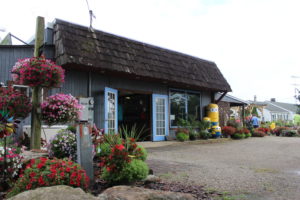
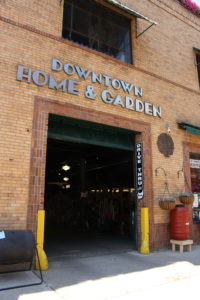
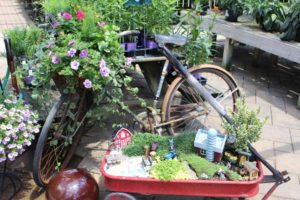
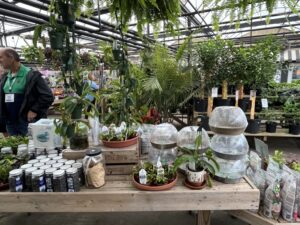
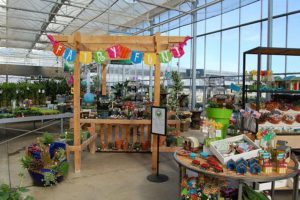
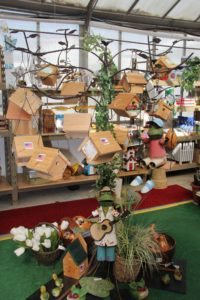
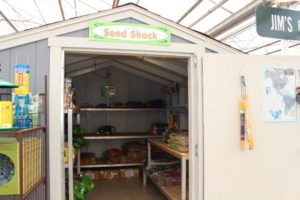
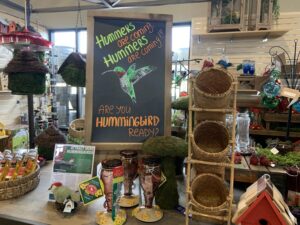
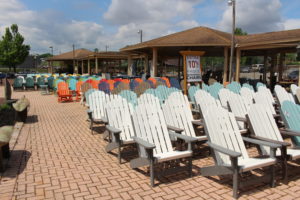
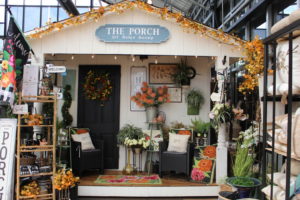
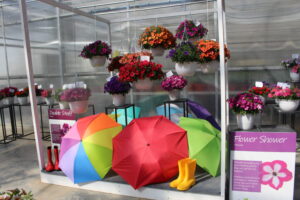
 Videos
Videos





